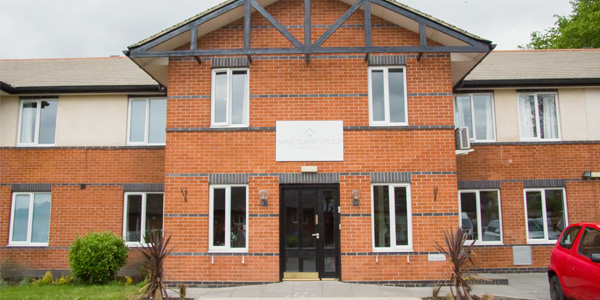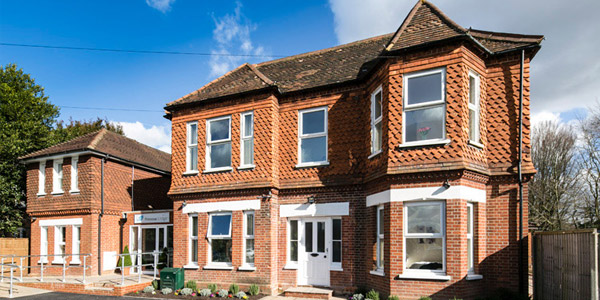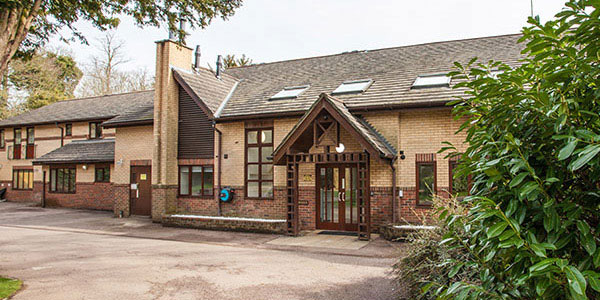Alcohol & Drug Rehab in Barking & Dagenham
Addiction Helper in the outer London Borough of Barking and Dagenham is proud to offer an alcohol and drug rehab directory of addiction recovery services with multiple residential alcohol and drug rehab options including medical detoxification for alcohol dependence syndrome and drug withdrawal management in and around Barking and Dagenham, Greater London. It lies around 9 miles (14.4 km) east of Central London. It is an Outer London borough and the south is within the London Riverside section of the Thames Gateway; an area designated as a national priority for urban regeneration.
The London Borough of Barking and Dagenham is a suburban town in East London, Greater London, England. The area used to fall within the County of Essex, therefore it used to be called Barking, Essex or Dagenham, Essex. If you require information regarding local drug treatment then contact us or your local authority. The administrative headquarters of the local council in the borough of Barking or Dagenham are in the main settlement, Barking Town Hall Square, Barking, East London, Greater London. There is very little in terms of local council public provision of drug and alcohol treatment, free at the point of contact.

Sanctuary Lodge is a state of the art detox and rehabilitation facility, se…
- Private
- Holistic Treatment
- Onsite gym
- Residential
Featured Rehabs
At Primrose Lodge we genuinely care that our patients make a full recovery …
Liberty House Clinic is a fully furbished detox and rehabilitation facility…
Banbury Lodge is a private UKAT rehab facility based in Banbury, Oxfordshir…
-
- 12 Step
- Group Setting
- Free
- Outpatient
-
- 12 Step
- Group Setting
- Free
- Outpatient
-
- 12 Step
- Group Setting
- Free
- Outpatient
-
- Eating Disorder
- Group Setting
- Free
- Outpatient
- Load More
Drug & Alcohol Rehab Services in London
- A
- B
- C
- D
- E
- F
- G
- H
- I
- J
- K
- L
- M
- N
- O
- P
- Q
- R
- S
- T
- U
- V
- W
- X
- Y
- Z
What Is Rehab?
Rehab – more formally entitled “residential rehabilitation” – is broadly considered to be the most effective means of treating addiction, in terms of its ability to provide the greatest chance of long-term recovery. Rehab tackles both the immediate challenge of physical dependency and the longer-term one of psychological addiction, in one holistic combination of medicine, therapy, fitness and dietary regimes, and more; it allows clients to understand the origins of their addiction and therefore to work to ensure they do not make similar mistakes going forward.

Rehab (the term describes both the process of treatment at a dedicated facility and such a facility itself) typically offers two main phases of treatment (treating physical and psychological addictions respectively) within one individualised treatment plan for each patient: a detoxification (“detox”) and withdrawal phase, to cleanse a client’s system of substances of abuse; and a therapy phase wherein clients are equipped with psychological defence mechanisms against relapse.
Rehab offers access to highly qualified medical professionals with a great understanding of addiction and its associated challenges, within tranquil, attractive, secure and confidential settings perfectly conducive to physical and mental healing.
How Can I Get Someone into Rehab?
The sooner someone is able to reach out to help, the sooner that help can be forthcoming (whether via rehab or otherwise); the flip side to that coin is that the longer you labour under the burden of addiction, the greater the chance that it will prove fatal (either as a result of an overdose or because of an accident or an attack in which substance abuse is a major factor).
With this in mind, the great strain being placed at present upon NHS services in densely populated areas such as Barking and Dagenham, and the resulting strict limits on places and distressingly lengthy waiting times, form a very serious problem.
If you’re struggling with an addiction and are unwilling to take such risks, you may wish to explore some of the private options available to you, and we can help provide this information and, as and when necessary, help you prepare in advance of a stay in rehab.
If your concern is not for yourself but for a loved one suffering from an addiction, who has not yet proven able to acknowledge their condition and as such is not ready to engage in treatment, we can assist you in planning an intervention or with other tactics that you can use to get them to confront their addiction and reach out for help.
Either way, with time being of the essence as discussed above, don’t delay any further: call us to speak with one of our addiction specialists about next steps.
Advantages of Private Rehab
Rehab provides a secure, pleasant, tranquil and confidential setting in which you can focus wholly – and wholeheartedly – upon your recovery, assisted by skilled, experienced and friendly medical professionals, and removed from your daily environment in which you have succumbed to addiction (as well as, of course, from the substance/s to which you have become addicted).
Upon arrival you will be assessed so that the medical team can understand the nature and severity of your addiction, before beginning the detox phase during which you will be supervised for your personal safety (and you may be provided with certain medications to ameliorate the worst effects of any withdrawal symptoms that may manifest).
During the subsequent therapy phase, you may engage in a variety of therapy models (in both group and one-to-one settings) to help you understand what led you into addiction in the first place, and to provide you with psychological defence mechanisms against temptation for when you re-enter the outside world. Your personalised treatment plan will also see you provided with bespoke fitness and dietary plans (on the basis of “healthy body, healthy mind”); meanwhile, depending on the specific rehab you are attending, you may also utilise a broad array of other facilities during your stay.
Your recovery will not be complete the moment you step out the door having completed a treatment program in rehab; on the contrary, recovery is a lifelong process with many pitfalls lying in wait. As a result, good rehab providers offer free aftercare (usually for up to a year after leaving rehab) to help you navigate around those pitfalls and reassure you that you still have access to high-quality care during this next crucial phase of your recovery.
Rehab Cost in Barking & Dagenham?
The cost of private rehab in or near Barking & Dagenham can vary significantly by treatment programme, and depending on which of a variety of optional extras are selected. As a rough guide, standard costs range from between £5,500 and £11,000 per month, though the cheapest rehab treatment can start from as little as £834 per week. For more details, call 0800 804 4755.
Barking & Dagenham NHS Addiction Treatment
Perhaps for reasons of cost, or because they may feel that despite the damage addiction is doing they are not able or willing to spend several weeks or even months away from their families and/or their jobs, some people decide that private rehab is not an option for them. If you believe for whatever reason that you are likely to find yourself in that group, do not give up hope: there are still options open to you. Various NHS and charity resources can be found in Barking & Dagenham and the wider Greater London area; speak with your GP about which of these resources may be available to you.
Advantages of NHS Treatment
Although there are certain problems associated with seeking treatment from the NHS, as have been mentioned previously, it’s important to recognise that there are advantages to taking the NHS route. The most obvious of these is of course cost: NHS services are free at the point of use.
The NHS also has a geographical advantage in that it operates across the country while some rehabs are a long way away from Barking & Dagenham (though this may in fact be an advantage for those wishing to be as far as possible from temptation…). NHS services are typically of a high standard – though quality does vary from one NHS trust to the next, as do waiting times as noted above.
Addiction Support Groups
A number of organisations exist across the country to provide assistance to recovering addicts, and some of these operate a support group model. Support groups are groups of individuals who are themselves recovering addicts – some only recently free from addiction, while others may have been clean for many years – and who come together at regular meetings to give and take mutual support: sharing their stories of addiction, giving advice on how to resist relapse, showing solidarity and sympathy when group members are struggling, and providing the simple companionship which can mean so much in times of difficulty and loneliness.
Support group attendees can come from all walks of life, brought together by their shared experience of addiction and recovery; typically, attendance at support groups is free and the only qualification for participation is a commitment to leading a life free of substance abuse.
The most famous support group organisation, and the one on which most others are modelled, is Alcoholics Anonymous (AA) which was founded in 1935 and runs on a 12-step programme of personal and spiritual development, with one of the steps being a recognition that a higher power – such as God – can assist with an alcoholic’s recovery.
Narcotics Anonymous (NA), founded in 1953 and based directly upon the AA model, is the second-largest support group organisation worldwide and caters to recovering drug addicts specifically. In a similar vein, but supporting those recovering from addictions to specific substances, are Cocaine Anonymous (CA), Heroin Anonymous (HA), Marijuana Anonymous (MA) and Crystal Meth Anonymous (CMA), all of which operate 12-step programmes. There are also support groups such as Al-Anon and Nar-Anon assisting the families and friends of addicts which typically hold meetings alongside those for the addicts themselves.
Support groups typically meet weekly, though each local chapter is managed independently and meeting times and venues are subject to change. To find information on meetings in or near Barking & Dagenham, see the relevant websites:
Alcoholics Anonymous; Narcotics Anonymous; Cocaine Anonymous; Heroin Anonymous; Marijuana Anonymous; Crystal Meth Anonymous.
Types of Counselling

Some recovering addicts – in particular those with very busy schedules – find that individual private counselling is an extremely useful treatment model. Private addiction counsellors work like regular psychotherapists – though with a clear emphasis on tackling the causes and consequences of substance abuse and addiction – offering private appointments (one-off, irregular, or on a regular basis – usually weekly) and typically charging a fee per appointment.
You can find private addiction counsellors across the country, with many at work in the capital; a great variety of different therapy models and approaches to treatment are available. Counsellors are usually available only during set working hours, although some do make themselves available for emergency access.
This type of counselling is often sought by recovering addicts who have already been through a programme of treatment such as may be provided in rehab and who desire supplementary support during the next phase of the recovery; on the other hand, it is also the preferred option for many addicts who have not yet been to rehab but are preparing to do so and who want help in managing their addictions prior to engaging in a full residential treatment programme.
Reaching Barking & Dagenham in London
This borough is located in East London, also positioned at the London Riverside section of the Thames Gateway. Apart from Barking and Dagenham, the third major district in the borough is Becontree. If you want to reach this area from London, it’s easiest to use the Hammersmith & City, the District, c2c or the London Overground. Depending on where exactly in the area you want to arrive, you can alight at either Barking, Upney, Becontree, Dagenham Heathway, or Dagenham East, all of which are stations located within the borough. In addition, you can also use the Dagenham Dock railway station or the Chadwell Heath station, found at the border with Redbridge.
You can also travel around by car, a method chosen by over 22% of the locals according to the 2011 census. The largest roads in the area are the A13 in the southern parts and the A12 in the northern ones.
The Barking and Dagenham wards are Chadwell Heath, Whalebone, Valence, Becontree, and Heath in the north; Parsloes, Alibon, Goresbrook, Mayesbrook in the centre; Eastbrook and Village in the east, Longbridge, Abbey, Gascoigne, and Eastbury in the West; River and Thames in the south. You can reach any of the wards in a short period of time via under or overground services.
This borough borders five others: Redbridge, Havering, Newham above the Thames border, and beyond it are Greenwich and Bexley. It’s really easy to reach if you’re living in any one of them. East London, where the borough of Barking & Dagenham is located, is a wide area which also includes the City of London, Lewisham, Hackney, and Tower Hamlets.
How to Get to Sanctuary Lodge from Barking & Dagenham
Sanctuary Lodge is a state-of-the-art, 24-bedroom detox and rehabilitation facility set in a tranquil neighbourhood in the pretty market town of Halstead, Essex. Sanctuary Lodge’s high-quality facilities and highly experienced medical and support staff create the ideal environment in which to address the key questions at the heart of recovery from addiction and to embrace its fully comprehensive holistic rehabilitation programme.
Halstead is not served by the national rail network. To get to Halstead from Barking & Dagenham by road, take the North Circular Road/A406 and head to the M11; join the motorway towards Cambridge, and stay on until the A120(E) exit towards Colchester. Continue onto the A120, then take the A131 and stay on that road directly into Halstead.
Sanctuary Lodge
Hedingham Road
Halstead
Essex
CO9 2DW





